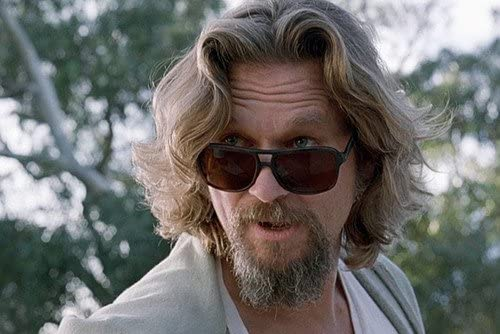A thing called love
Just listen to the rhythm of my heart!
There’s a chance we could make it now!
Do you believe in love after love?
Brb gotta feel what my insides say
Life after love
What is love?
Baby don’t hurt me!
Don’t hurt me!
Does anybody love anybody anyway?
No one needs more than 500sqft of living space per capital until poverty is eradicated
War is absurd and the consequence of greed and senile, old, fucked up and immoral men
Democracy doesn’t work without a limit on speech - specifically hate speech, authoritarianism, and ethnic superiority ideology
Fascism is the greatest concern of the western world right now
Genocide deserves instant disavowal and should convince any sane person to immediately support removing any government official or politician from office who doesn’t oppose it
Black Lives Matter, and American history has treated black Americans awfully (see prison industrial complex)
Housing isn’t an investment vehicle. Tax speculative purchasing of housing. Support government building high density housing like the HBD system in Singapore or Austria’s housing system
So 1000sqft for a couple, 1500 for a family of 3?
That seems pretty reasonable, though I’m not sure it really scales linearly. My wife and I live in appx. 1000sqft, and that’s really plenty for us. An extra 500sqft seems about right when we have a kid, but another 500 for each additional kid would be excessive.
I gave it as an upper bound.
E.g. 3500sqft for a 3-5 person family is way too large.
Mansions are basically an immoral amount of waste/greed (in the realm of >1000sqft per person, or super rich person mansions in the realm of 10,000sqft per person)
We believe in nothing, Mr. Lebowski.
Nothing.
And tomorrow we come back and we cut off your chonson.
A good cup of coffee and the universe does not care about existence.
And a Hard Boiled Egg
Why does the Universe have an opinion about existence?
I dont believe it does.
deleted by creator
I have a crackpot theory that I enjoy for the sake of enjoying it. What if our “soul” or “consciousness” is the collapse of the quantum field. Our decisions moment to moment aren’t random chance, but the unspeakable thing.
Again, pure speculation, but it’s a lot more satisfying and rewarding to live by than throwing moral responsibility to the universe.
deleted by creator
My understanding is that, according to the many-worlds interpretation of quantum mechanics, everything that can happen will happen - so for every choice you’ve made, there’s an alternate timeline for every other possible choice you could have made. But it still makes no sense to claim that you could’ve acted differently in this timeline.
Many-worlds is nonsensical mumbo jumbo. It doesn’t even make sense without adding an additional unprovable postulate called the universal wave function. Every paper just has to assume it without deriving it from anywhere. If you take MWI and subtract away this arbitrary postulate then you get RQM. MWI - big psi = RQM. So RQM is inherently simpler.
Although the simplest explanation isn’t even RQM, but to drop the postulate that the world is time-asymmetric. If A causes B and B causes C, one of the assumptions of Bell’s theorem is that it would be invalid to say C causes B which then causes A, even though we can compute the time-reverse in quantum mechanics and there is nothing in the theory that tells us the time-reverse is not equally valid.
Indeed, that’s what unitary evolution means. Unitarity just means time-reversibility. You test if an operator is unitary by multiplying it by its own time-reverse, and if it gives you the identity matrix, meaning it completely cancels itself out, then it’s unitary.
If you just accept time-symmetry then it is just as valid to say A causes B as it is to say C causes B, as B is connected to both through a local causal chain of events. You can then imagine that if you compute A’s impact on B it has ambiguities, and if you compute C’s impact on B it also has ambiguities, but if you combine both together the ambiguities disappear and you get an absolutely deterministic value for B.
Indeed, it turns out quantum mechanics works precisely like this. If you compute the unitary evolution of a system from a known initial condition to an intermediate point, and the time-reverse of a known final condition to that intermediate point, you can then compute the values of all the observables at that intermediate point. If you repeat this process for all observables in the experiment, you will find that they evolve entirely locally and continuously. Entangled particles form their correlations when they locally interact, not when you later measure them.
But for some reason people would rather believe in an infinite multiverse than just accept that quantum mechanics is not a time-asymmetric theory.
I dunno man. I’m currently in my time-space experiencing whatever I can. Is it my “decision” to not deteriorate in a pile of my own waste? Who knows! I’ll be dead before we have an answer, and I’m not a philosopher, so I might as well be an armchair optimist in the meantime.
Just because I probably could “disprove” my theory with science, I think the concept of self and science are inherently incompatible with our current model. So until someone can disprove my experience with the world, I’ll continue “choosing” to accept it.
This many worlds thing I find that it is easier to visualise as an extra dimension with all the other dimensions within it, including time.
Free will and the “self” - just two sides of the same coin. You’re not free to choose, because there’s no “you” in the first place. You’re just a collection of atoms obeying the laws of physics. It makes no sense to say you could’ve done otherwise. No, you couldn’t - whatever caused you to make a decision in the first place would compel you to make the same choice every single time, no matter how many times you rewound the universe, assuming everything else stayed the same.
We do things for two reasons: either because we want to, or because we have to. There’s no freedom in being forced to do something - and you don’t get to choose your wants or don’t-wants.
I agree that free will is an illusion, but have decided that because it is true it isn’t worth thinking about further.
I don’t find the “why” to be interesting, which is interesting because it is like “I” am trying to avoid further reflection on that fact which “I” also have no control over. haha
I always understand “free will” to mean “figure out who you really are”. I.e., every person has a certain character from birth, and that just unfolds throughout life. “Free will” is about figuring that out.
Myself and Sasquatch.
I also believe in both this Lemmy user and Sasquatch.
Only the guy in the Sasquatch suit would say this.
We got 'em. We finally got 'em.
I believe what doesn’t kill you makes you…stranger.
I believe in social democracy, I believe that it is the best political ideology.
It combines a free society with a government provided safety net.
I see communism as being too restrictive, and unregulated capitalism as being way too out of control.
A progressive social democratic country with a strong government seems to me as combining new ideas with a stable foundation.
What Economic structure would you use in your ideal society?
I am not well versed in the theory if economics.
In general terms and speaking purely in an ideal world, I would expect that a regulated market economy would allow the society to exploit the free market and the greed of humans, while providing a solid foundation of government services for it’s citizens to rely on.
What can go wrong will go wrong.
I believe in the sweet spot, soft-core pornography, opening your presents Christmas morning rather than Christmas Eve, and I believe in long, slow, deep, soft, wet kisses that last three days.
What you need is a rain out.
The indomitable human spirit
Evolution
Only that which has evidence to support it.
How much n is enough n?
Depends on what n is.
Communism.
The world is made of magic, it just differentiated into so many forms, that one of them is science and that’s what many people believe is all there is.
I feel in the mood to explain more about this:
Similar to european school’s history classes tend to be focused on european history (we call that “eurocentrism”), our worldview is focused on humans, i think that’s called “anthropocentrism”. While humans are important, it’s not everything there is. There’s also plants and other living beings, and in fact there’s many more of them than of us. I try to consider that.
I’m calling the unity of all life “magic”, i came up with that and it’s supposed to be a play-on-words on the german word “Magen” (stomach) (representing that plants and animals are connected through an important relationship that is food). Also the stomach is the organ most physiologically/spatially central in the human body, in my opinion. So i imagine that everything’s in the human is built around that “central” organ that is the stomach. That makes sense as the intake of food is the root of all animal existence, that enables animal’s existence in the first place. Thus “everything is created from the stomach outwards”, as supportive organs to help the stomach collect and digest food.
This is an interesting take.
I like to think of Science as magic, because it really is.
Ancient peoples played with “Alchemy,” and modern chemistry is simply that. They would lose it if they knew we could “grow” diamonds, or that we have created an entirely new element.
Or that we’ve turned lead into gold, though not very cost-effectively to say the least.

















